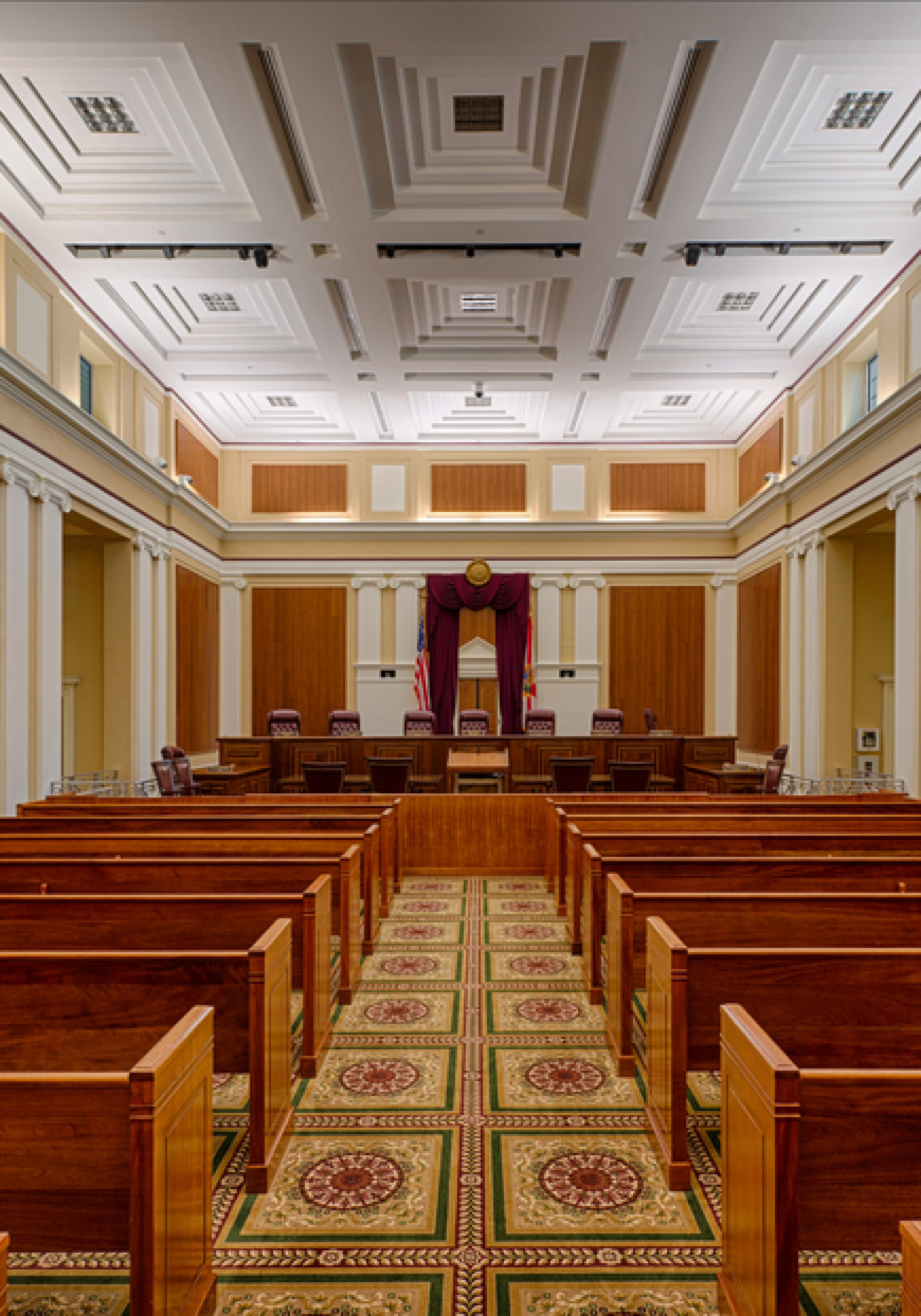
The first three candidates to be interviewed for state Supreme Court justice burnished their conservative credentials Monday afternoon.
The Supreme Court Judicial Nominating Commission began interviewing the 11 applicants to replace retiring Justice James E.C. Perry, who departs the bench Dec. 30.
The nominating panel will forward six names by Dec. 13 to Gov. Rick Scott, who will then name Perry’s replacement.
This is Scott’s first chance to pick a state Supreme Court justice, and thus the first opportunity to expand the high court’s reliably conservative voting bloc, now only two justices: Charles Canady and Ricky Polston.
“I generally care about two things,” Scott has said about judicial appointees. “Are they going to be humble in the process, and are they going to uphold the law?” The governor, like the conservative GOP House majority, is a believer in judicial restraint.
First up on Monday were Wendy W. Berger, a judge on the 5th District Court of Appeal; Alice L. Blackwell, a circuit judge in Orange County; and Roberta J. Bodnar, an assistant U.S. attorney in Ocala.
The judiciary’s job is to “apply the law, to interpret the law, but not to make it,” Berger told the panel.
She may have the most experience in death penalty cases, which now makes up roughly half of the Supreme Court’s caseload.
As an assistant general counsel, Berger was Gov. Jeb Bush’s point person on death sentences, helping him determine which cases were ripe for death warrants.
A recent U.S. Supreme Court decision, based on a Florida case, requires unanimous jury recommendations before a judge can impose a death sentence.
But Berger told commissioners she doesn’t believe the Hurst ruling should be retroactive: “That would open a large amount of floodgates we don’t need to see.”
Asked about professionalism, she said dissenting from a majority opinion should mean “you can disagree without being disagreeable.”
She quickly added, “You can be open minded to other points of view, but if they’re outside the law, I’m not going to agree for the sake of collegiality.”
Berger also played up her trial court experience as a circuit judge, saying “if you want to call balls and strikes, you need to have played the game.”
Blackwell, a judicial appointee of Democratic Gov. Lawton Chiles, played defense early and often, mentioning her “conservative judicial philosophy” and saying she was “not an activist judge.”
The judge played up her rural South Carolina upbringing – “You can probably hear it in my voice” – and said she worked her way through school as a church organist.
She was 34 when she first applied to be a judge, and said she was the second youngest person to become a judge when appointed in 1991. Blackwell followed the footsteps of her “Uncle Joe,” a judge who held the Bible at her swearing-in.
Blackwell said she follows the late U.S. Supreme Court Justice Antonin Scalia’s concept of ‘originalism’: “What do the words mean that are in the law?”
She distinguished herself from activists who say what the law “ought to be.”
“That’s not a judge’s job,” Blackwell told the panel. “I don’t legislate from the bench.”
But, she was asked, what about when courts, even the Supreme Court, have misinterpreted a law?
“I hope I would have the intellectual and moral fortitude to say we got it wrong and we need to change it,” she said.
Bodnar, unlike Berger and Blackwell, sat for her interview with no notes. She too espoused restraint in interpreting the law, saying judges should “apply the law” and not “invent it.”
“The law belongs the people,” she said, a theme she revisited later in her interview. “Start with the law, never start with instinct.”
Bodnar, however, bristled at a question on her lack of judicial experience, referring to her analytical skill in a brief she submitted as a writing sample.
“I wrote that brief, and it’s good,” she told commissioners. “I don’t need to have put on a black robe.”
She also was asked about her long-standing “BV” Martindale-Hubbell peer rating, which she’s had for 23 years. “BV” is similar to a silver medal; “AV” is considered the gold standard.
Bodnar smiled, saying the only reason she sought a rating in the first place was to ensure a pay bump from her then-boss, state Attorney General Bob Butterworth. Getting rated or getting published was the only way he’d give a raise, she said.
Finally, when asked about a right to bear arms, Bodnar said she “believe(s) in a personal right to bear arms,” adding that she has a concealed carry permit.
The interviews, which are taking place in Orlando, continue through the afternoon and are being livestreamed by The Florida Channel.



